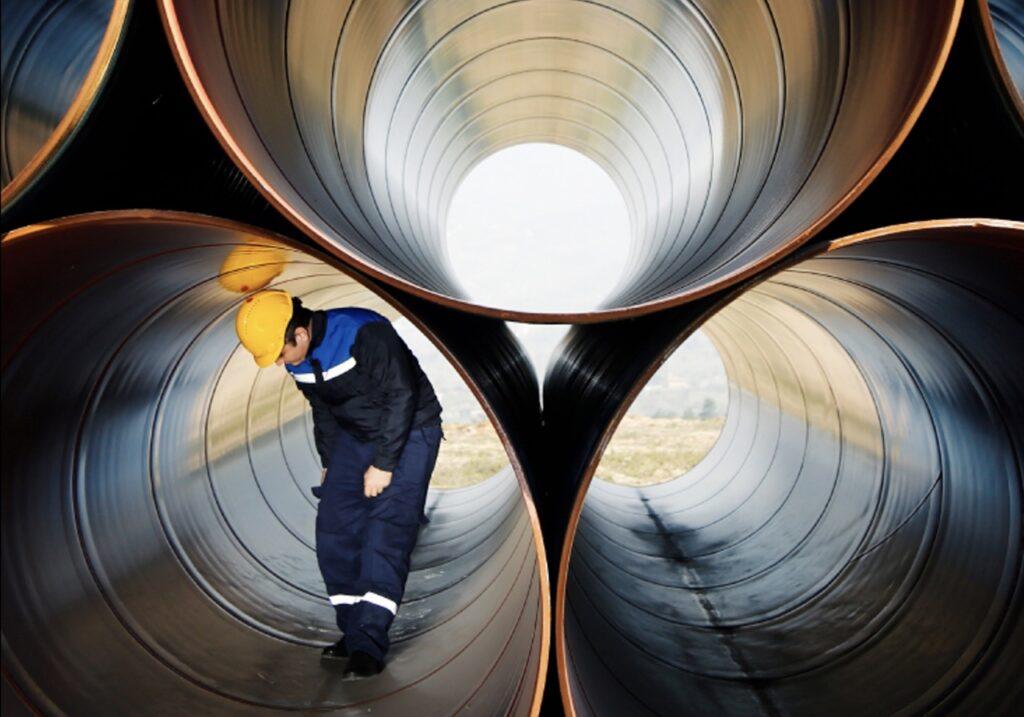Is the oil & gas industry shooting itself in the foot with this outsourcing strategy?
Recently I came across an article “What and when you should not outsource” (Outsourcing Law, 2019) which made me think about the long-lasting trend of the upstream oil and gas industry to outsource geosteering services. Hiring a contractor to “do the job” or fully outsourcing well placement services has been a pattern for so long, that no one even pays attention to it anymore.
The renowned PWC stated in their oil and gas trends report (Maestro et al., 2019) that upstream companies should “replace the “owner-operator” model with an “owner”- only approach” in the current volatile times. Simply put, this means “outsource everything that you are not good at” and as long as it is not a “commercial” aspect of your business. They suggest not to develop competencies (if you don’t have them), but to outsource them.
This must sound like heresy to many of you, but what is actually the logical explanation for it?
Don’t get me wrong, I have used (and I still use) contractors and outsourced staff (do not mistake these two things as the same) and I myself have been outsourced and contracted to do some geosteering jobs.
I guess I need to be a bit controversial here.
Taking the report’s conclusions literally, this means that any organization, for example, HSBC bank (!) can outsource all the expertise and services and become an upstream oil and gas operator. Can they do that and be successful? What does it make an oil and gas operator being an oil and gas operator? Outsourced services?
The sad-funny thing is, that many experts from far better performing industries repeat the same mantra: “never outsource your core business competencies” – google it – you will see how many results you will get. Here is one: “Six Key Factors in The Right Outsourcing Decision” by Zwilling, M. (2011).
Consequently, what are the core competencies of any upstream oil and gas operator if not exploring and drilling and geosteering and then producing oil and gas? And why they are often outsourced then?
Core competencies of upstream oil and gas operator:
1. Geological interpretation and modelling (with a decent success rate for exploration wells – simply speaking deciding where to drill)
2. Drilling in a safe and cost-efficient manner – We all know what happens if the drilling process is not handled properly.
3. Placing horizontal wells (for fields that require horizontal wells obviously) to assure that anticipated oil production can be actually produced – through optimal well placement and maximised reservoir exposure.
4. Production – controlled through effective reservoir management.
In terms of geosteering services, the problem probably lies with the expense structure of an oil & gas company where personnel costs are a relatively low fraction of total outlays. So, they can afford to pay for talent in case they need it, even if on average the contractors and outsourced personnel are more expensive. Additionally, consultants (contractors) and outsourced personnel hired for a limited period of time are seemed to be theoretically cheaper (although they are not). At least the cost looks good on paper when you present it to the management… in the short term.
Finally, the outsourced staff is extremely cheap compared to their performance impact and the financial outcome of their decisions. Imagine how many barrels of oil (and $$$) that one good steering decision makes.
But isn’t this strategy very short-term and actually economically not viable? Is the oil and gas industry yet again shooting itself in the foot with this outsourcing strategy?
Controversially, here is why I think it is.
In a typical drilling operation, outsourcing certain services, for example well placement service (geosteering) seems to be a good idea since this complex operation is left in the hands of highly skilled professionals who optimize the placement of a wellbore in the reservoir in order to achieve maximum hydrocarbon production (which is the core of the oil and gas business by the way, in case someone forgot that). I believe that the primary risk of outsourcing such a critical aspect of the drilling operation revolves exactly around the involvement of that third party/service provider. And these are negative aspects of such involvement:
1. The representative of the service company works in the best interest of his company, not the hiring one (service provider is normally not under control of the hiring company). In some areas of the world, the outsourcing services are not regulated by law at all! This means that even if she/he doesn’t perform, the consequences of it are not as severe as if she/he would work for the operator (For example instead of losing the job, they are transferred to another operator).
2. Expectations may not be met. Certain needs that arise during the job may not be clearly specified prior to the performance of a service and as such the third party may not be liable for the completion of said activities.
3. The outside party often possesses different standards in the areas of data security which could put company information at potential risk. With the current data protection laws, this could become a nightmare.
4. Lack of control over the knowledge-based function – transferring the keys of the intellectual capital of your company to the third party. Imagine all that hard work to interpret seismic, explore and discover hydrocarbons and now with the Field Development Plan, the geosteering process is handed over to someone else. The crucial step which the production directly depends on, and which will determine whether the company is actually going to produce hydrocarbons is transferred to a third party.
5. Finally, and most importantly – all the knowledge obtained during the job is removed from the hiring company together with the person that performed the service right after it is completed. Any end of well report or lessons learned will never replace an active involvement in the geosteering and dynamic relationship between all the parties involved in the work that was created.
Each of the reasons mentioned above has a very tangible financial value assigned to it which predominates drastically the cost of hiring geosteering staff full time. Operators should keep the geosteering expertise in-house. This knowledge would serve them long after the job is done, and it is the core-competency that you should never outsource.
I am sure there are many contractors out there. Do you agree / disagree? What is your opinion?
References:
Outsourcing Law, 2019, What and When You Should Not Outsource. Retrieved from http://www.outsourcing-law.com/what-and-when-you-should-not-outsource/
Maestro, A., Branson, D., Biscardini, G., & Morrison, R. 2019. Oil and Gas Trends 2018-19. Retrieved from https://www.strategyand.pwc.com/trend/2018-oil-gas
Zwilling, M., 2011. Six Key Factors in the Right Outsourcing Decision. Business Insider. Retrieved from https://www.businessinsider.com/six-key-factors-in-the-right-outsourcing-decision-2011-5?r=US&IR=T






